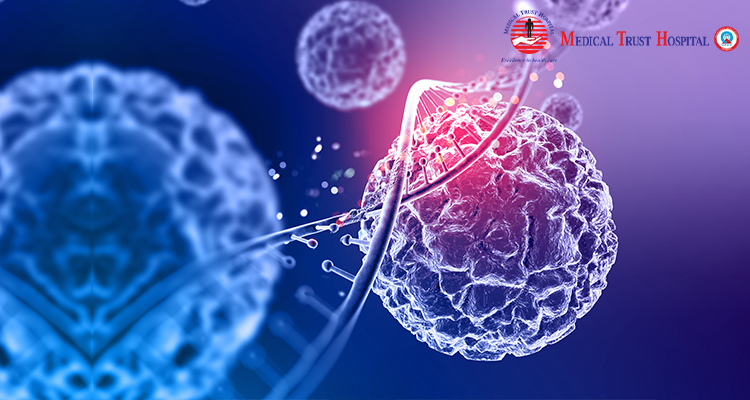Cancer has long been treated with surgery, radiation, and chemotherapy but while these methods remain vital, they are often limited by side effects and a lack of precision. In contrast, CAR T-cell therapy offers a new frontier. This revolutionary treatment modifies a patient’s own immune cells to recognize and attack cancer with remarkable accuracy. It’s personalized, highly effective, and represents a profound leap forward in how we think about cancer care.

CAR T-cell therapy represents a shift in how we approach cancer treatment. Rather than targeting the disease externally, this treatment empowers the patient’s own immune system to become the ultimate weapon against cancer. As research progresses and new clinical trials emerge, the future of cancer care is being reshaped and CAR T-Cell Therapy is at the heart of this transformation.
What is CAR T-Cell Therapy?
CAR T-cell therapy, or Chimeric Antigen Receptor T-cell therapy, is a type of immunotherapy that involves modifying a patient’s own T-cells (a kind of white blood cell) to better recognize and fight cancer.
Here’s how it works:
T-cell Collection: Blood is drawn from the patient, and T-cells are separated in a lab.
Genetic Engineering: These T-cells are then reprogrammed by adding a receptor (CAR) that allows them to recognize cancer cells.
Multiplication: The modified T-cells are multiplied in large numbers.
Infusion: After a preparatory chemotherapy, the modified CAR T-cells are infused back into the patient.
Action: These engineered cells seek out and destroy cancer cells in the body.
Why Is CAR T-Cell Therapy Considered the Future of Cancer Treatment?
CAR T-cell therapy isn’t just another tool in the oncologist’s arsenal, it’s a complete reimagining of cancer treatment. Here’s why experts worldwide see it as a game-changer:
1. Personalized and Precision-Based
Unlike chemotherapy or radiation, which affects both cancerous and healthy cells, CAR T-cell therapy is highly targeted. It is designed based on the individual patient’s immune system and tumor type, making it a personalized form of treatment.
2. High Success in Blood Cancers
CAR T-cell therapy has shown remarkable success in treating blood cancers such as:
- Acute Lymphoblastic Leukemia (ALL)
- Diffuse Large B-Cell Lymphoma (DLBCL)
- Multiple Myeloma
In many cases, patients who did not respond to conventional therapies have gone into remission after CAR T-cell treatment.
3. Long-Lasting Results
CAR T-cells remain in the body and continue to fight cancer cells long after treatment, offering a chance for sustained remission and long-term recovery.
4. Rapid Global Advancements
With ongoing research and clinical trials, scientists are expanding the use of CAR T-cell therapy to treat solid tumors like brain, lung, and pancreatic cancers. Next-generation CARs, improved safety protocols, and combination therapies are showing promising results.
Latest Advances in CAR T-Cell Therapy
The field of CAR T-cell therapy is evolving rapidly. Some of the latest developments include:
Universal CAR T-cells: Researchers are developing “off-the-shelf” CAR T-cell products from healthy donors to reduce costs and expand accessibility.
Dual-Targeting CARs: These advanced CARs can attack cancer cells in more than one way, reducing the risk of relapse.
Improved Safety Mechanisms: Innovations are being made to manage side effects like cytokine release syndrome (CRS) and neurotoxicity more effectively.
CAR-NK and CAR-M Therapies: Expanding beyond T-cells, scientists are engineering Natural Killer (NK) and macrophage cells for similar cancer-fighting purposes.
Challenges in CAR T-Cell Therapy
While CAR T-cell therapy is groundbreaking, it does come with challenges:
Cost and Accessibility: The therapy is complex and expensive, though ongoing research aims to make it more affordable.
Side Effects: Some patients may experience immune-related side effects that require specialized care.
Limited Use in Solid Tumors: Research is ongoing to overcome the barriers in using CAR-T for solid cancers.
Despite these challenges, the outlook is optimistic. With support from leading hospitals and research institutions, CAR T-cell therapy is rapidly becoming more refined, accessible, and effective.
What Sets Medical Trust Hospital Apart in CAR T-Cell Therapy
At Medical Trust Hospital, we believe that every patient deserves access to cutting edge cancer care. That’s why we are proud to be among the few hospitals in South India offering advanced CAR T-cell therapy as part of our comprehensive oncology services.
Here’s what sets us apart:
- A highly specialized oncology team with expertise in immunotherapy
- State-of-the-art laboratory and cell-processing infrastructure
- Personalized care and monitoring throughout the therapy journey
- Access to the latest clinical protocols and safety mechanisms
- Post-treatment recovery and long-term follow-up programs
We are committed to combining clinical excellence with compassionate care ensuring every patient receives world-class treatment tailored to their needs.
Leading the Future of Cancer Care with CAR T-Cell Therapy
CAR T-cell therapy is not just a breakthrough, it is the future of cancer treatment. As research continues and technology advances, more patients will have the opportunity to benefit from this life-saving innovation.
Medical Trust Hospital is proud to lead this transformation in cancer care by offering one of the most advanced and personalized CAR T-Cell Therapy programs in Kochi. With our expert team, advanced infrastructure, and patient-first approach, we ensure that you or your loved one receives the best possible care and outcomes.
If you’re looking for the best CAR T-cell therapy hospital in Kochi, Medical Trust Hospital is your destination for hope, healing, and innovation.